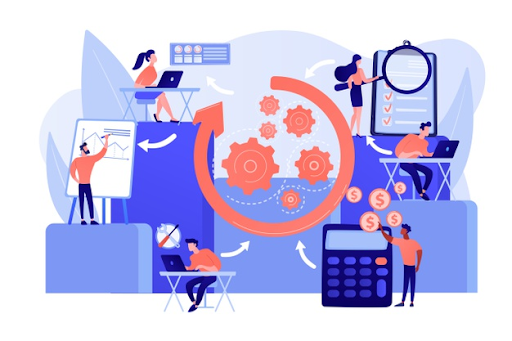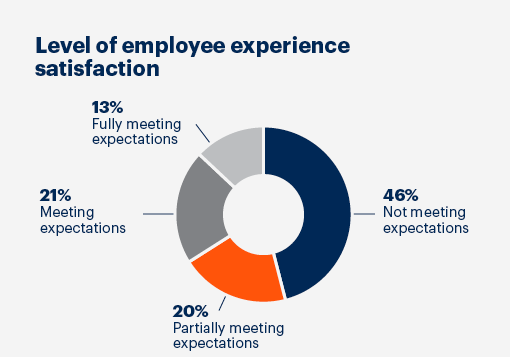In the case of employees, “Do not take yesterday’s take-up too much today.” Because in past years, employers didn’t consider it an essential part of an organization, but in the modern era, an organization must consider its workforce as an important asset of the business. Generally, the human resource department of an organization takes care of every employee-centric thing; that is why we can call the HRD the heart of an organization. However, the other departments of an organization, like marketing, selling, customer support, accounting, finance, etc., are equally important for the business, just like the personnel department.
Employee management is a part of HR’s job; it is essential to run an organization smoothly. It includes everything starting from managing employees’ data to control their activities in the working premises. Employee management/organization is essential to run the business effectively. Have you ever thought, why are firms suffering from a high turnover ratio? The company faces these kinds of issues just because of lower employee satisfaction. If the manager fails to satisfy employees, then they create unnecessary conflicts and leave an organization. Employee satisfaction includes employers’ behavior with them, timely payment of salary, healthy working environment, job security, etc.; the following facts and figures show the same;
(Image Source)
From the following figure, we can say that there is a chance of 66% (46%+20%) of employees probably switching to another company, which means it considers a high employee turnover rate. Low compensation rates are the main reason for the employee turnover rate.
How Compensation Theory Helps Employers To Organize Staff Effectively
Generally, the human resource department uses web-based payroll solutions to calculate employees’ salaries; that is why we can say that because of errors in calculation, staff gets less payment than they actually want. But we can say when an employer does not offer fair pay to them, they will be dissatisfied.
Improve Employee Engagement
Not just monthly fixed salary but employees also get extra rewards in terms of bonuses, incentives, etc., that will affect their engagement and job satisfaction. Compensation here works as a motivation tool; the more they get rewards, the more they will engage in the working premises because it shows that you care about their dedication and hard work. In the case of unfair salary payments and no extra benefits to employees, the situation is reversed. That is why fair payment to employees is essential to manage them.
Boost Workforce Performance
Employee compensation and their working performance have a direct connection. The low salary package decreases employee morale which affects their performance. As we know, extra monetary benefits other than wages and salaries are the best motivational weapon that employers use that ensure high employee performance.
Employee Retention
Offering competitive pay to the employee is one the best tactics of retaining the employees for a longer period. If you pay them according to their job, then they think that their value in an organization and that’s it! You can win the match; now, you will easily retain them for the long term because they trust you. Not only remuneration but other factors also affect employee retention like work-life balance, working environment, and culture, job security, etc. That is why the personnel manager needs to focus on each area that affects employee retention.
Employee Motivation
There are lots of sayings about employee salary and their motivation. Some say workforce salaries increase their motivation, while some say there is no such connection between both of them (for example, Pfeffer, 1998). But actually, employee salaries and wages have more or fewer connections with employee motivation because if an employer pays lower than they deserve, then it demotivates them and becomes a cause of less employee engagement and a high turnover rate.
Healthy Working Environment
What does a company do to develop a healthy working environment in the company? The answer may take a variety of forms, including the use of supportive furniture, the use of the best office microwave for healthy eating habits, giving away fresh fruits, and many more.
Among all of them, compensation also plays a strong role that participates as well in keeping the work environment healthy. How? Let’s understand it.
A healthy working environment is when employees and employers have a healthy relationship, which means there are no conflicts between them. A healthy working environment increases employees’ productivity which ultimately boosts the profitability of the business. Suppose the employer of the company does not pay a fair amount to employees as a salary. In that case, there is a cancer of conflicts between them that affects their productivity and the firm’s profitability.
Personal Well Being
We know that improving customer experience is essential, same as that employee experience is also vital for the success of the business. Employee personal well-being includes their job, duties, working environment, stress level, etc., that affects their health and happiness. The remuneration or salary amount they receive every month contains errors in the calculation that affects employees’ working experience. Moreover, if they do not get an increment in salary after a specific period, then that also affects their happiness and well-being.
Non-monetary Rewards Also Works
Non-monetary rewards include flexible timings, free holiday trips with family, complimentary dinner with friends and family, discount coupons of mall and gym, etc., also affect their performance. These small efforts help them to feel their work is really appreciated by the employers that improve their morale. Moreover, non-monetary rewards work as an intrinsic motivational tool for employees that improve their performance and regularization.
Reduce Absenteeism
Employee compensation works as a motivational tool that improves employee morale and enthusiasm. A conflicted working environment and lower remuneration affect employees’ happiness and their performance. There is only a single rule: unhappy employees increase the absenteeism rate. That is why the human resource department focuses on employee remuneration to reduce their absenteeism and improve their journey.
Extra Monetary Benefits
Extra monetary benefits include mediclaim, health insurance, childcare, free studies to children, etc.; these kinds of motivational benefits affect their productivity and loyalty. Extra payment then salary helps the employer to improve their performance and boost the profitability of the firm.
The Final Thought
Employees are the real asset of the company; that is why improving their working journey is the duty of the personnel manager of the firm. The compensation or a monthly salary they get from the human resource department of an organization is the only motivational thing they want because it is quite clear that they are working just for the sake of their bread and butter, so payment matters to them. If employers don’t provide the salary that they actually deserve, then it affects their performance and the company’s profitability. That is why to organize your employees effectively in the working premises as a human resource manager; you need to focus on workers’ fair pay.



